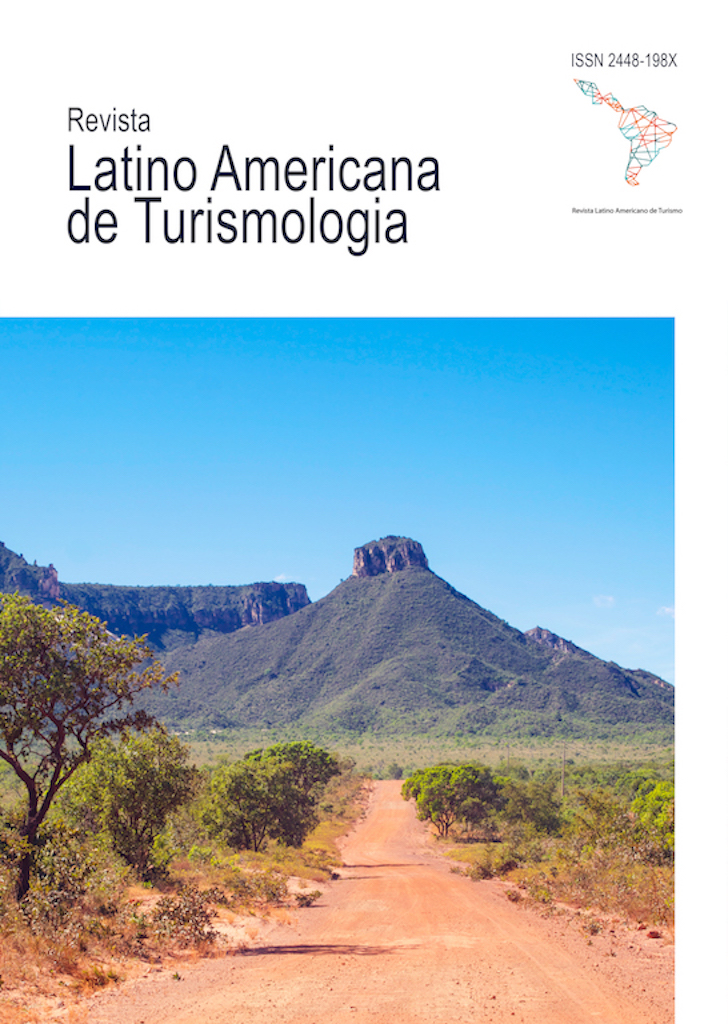Ecolodges as a Community-Based Tourism Development Strategy: the case of Chaouen in Morocco
DOI:
https://doi.org/10.34019/2448-198X.2017.v3.10032Palabras clave:
Community-based tourism, ecolodges, sustainable development, MoroccoResumen
This paper consists of an empirical study investigating to what extent can ecolodges serve as community-based tourism development strategy. It is conducted in a cultural and natural tourism destination north of Morocco-Chefchaouen or shortly known as Chaouen-. A considerable amount of literature was reviewed in order to form the theoretical framework of this study consisting mainly of community-based tourism (CBT), local participation, tourism benefits, and tourism development. Fifteen (15) semi-structured interviews were conducted mainly with ecolodges’ owner/managers, civil society activists who contribute to the tourism sector, and government officials who directly represent public agencies in charge of tourism in the region. Data collection method were chosen to be semi-structured interviews for the sake of maximum data quality and more vivid interaction with interviewees (Harris & Brown, 2010). The collected data set was analysed using quantitative content analysis, following the categories of themes and concepts extracted from the theoretical framework. The main findings of the paper show that indeed ecolodges generate a considerable benefit to local community, especially, on the socioeconomic level, but on the other hand, there is a lack environmental awareness and an unclear stakeholders structure.
Descargas
Citas
Andereck, K. et al., (2005). Residents Perceptions of Community Tourism Impacts. Annals of Tourism Research, 32(4), 1056–1076.
Ashley, C., & Maxwell, S. (2001). Rethinking Rural Development. Development Policy Review, 19(4), 395–425.
Besculides, A. et al., (2002). Residents’ perceptions of the cultural benefits of tourism. Annals of Tourism Research, 29(2), 303–319.
Bramwell, B., & Sharman, A. (1999). Collaboration in local tourism policymaking. Annals of Tourism Research, 26(2), 392–415.
Bringas, R., & Israel, J. I. (2004). El turismo alternativo : una opción para el desarrollo local en dos comunidades indígenas de Baja California. Economía, Sociedad Y Territorio, 4(15), 551–590.
Bulatović, J., & Rajović, B. (2016). Applying Sustainable Tourism Indicators to Community-Based Ecotourism Tourist village Eco-katun Štavna. European Journal of Economic Studies, 16(2), 309–330.
Dangi, T. B., & Jamal, T. (2016). An integrated approach to “sustainable community-based tourism.” Sustainability (Switzerland), 8(5), 1–32.
Harris, L. R., & Brown, G. T. L. (2010). Mixing interview and questionnaire methods : Practical problems in aligning data. Practical Assessment, Research & Evaluation, 15(1), 1–19.
Jamal, T., & Stronza, A. (2009). Collaboration theory and tourism practice in protected areas. Journal of Sustainable Tourism, 17(March), 169–189.
Luck, M. (2003). Education on marine mammal tours as agent for conservation — but do tourists want to be educated ? Ocean & Coastal Management, 46(2003), 943–956.
Mayaka, M., & Akama, J. S. (2007). Systems approach to tourism training and education. The Kenyan case study. Tourism Management, 28(2007), 298–306.
Mehta, J. A., & Kellert, S. R. (1998). Local attitudes toward community-based conservation policy and programmes in Nepal. Environmental Conservation, 25(4), 320–333.
Moore, M. et al.,(2007). Linking Human and Ecosystem Health : The Benefits of Community Involvement in Conservation Groups. EcoHealth, 3(2007), 255–261.
Orams, M. B. (1997). The Effectiveness of Environmental Education : Can We Turn Tourists into “ Greenies ”? Progress In Tourism And Hospitality Research, 3, 295–306.
Richins, H. (2000). Influences on Tourism Development Decision Making : Coastal Local Government Areas in Eastern Australia Journal of Sustainable Tourism, 8(3), 207–231.
Scheyvens, R. (1999). Ecotourism and the Empowerment of Local Communities.Tourism Management, 20(APRIL 1999), 245–249.
Smith, S. L. J. (2010). Practical Tourism Research. CABI Pub.
Stem, C. J. et al., (2003). Community Participation in Ecotourism Benefits : The Link to Conservation Practices and Perspectives. Society and Natural Res., 16, 387–413.
Tosun, C. (2000). Limits to community participation in the tourism development process in developing countries. Tourism Management, 21(2000), 613–633.
Wang, Y. A., & Pfister, R. E. (2008). Residents ’ Attitudes Toward Tourism and Perceived Personal Benefits. Journal of Travel Research, 47(84), 84–93.
Zagonari, F. (2009). Balancing tourism education and training. International Journal of Hospitality Management, 28(2009), 2–9.
Descargas
Publicado
Cómo citar
Número
Sección
Licencia
Salvo quando expressamente indicado em contrário, todo o conteúdo desta revista (RELAT) está licenciado por Creative Commons, Atribuição Não Comercial / Sem Derivações / 4.0 / Internacional (CC BY-NC-ND 4.0).
Portanto, os autores concordam que as obras publicadas nesta revista estão sujeitas aos seguintes termos:
1. A Universidade Federal de Juiz de Fora, por meio do seu Centro Latino Americano de Turismologia (CELAT), aqui denominado como o editorial, conserva os direitos patrimoniais (direitos autorais) das obras publicadas.
© Centro Latino Americano de Turismologia (CELAT), Universidade Federal de Juiz de Fora (UFJF), 2020.
2. Pode-se copiar, usar, difundir, transmitir e expor publicamente, desde que: i) seja citada a autoria e a fonte original de sua publicação (revista, editorial e URL da obra); ii) não seja utilizada para fins comerciais; iii) seja mencionada a existência e as especificações desta licença de uso.





